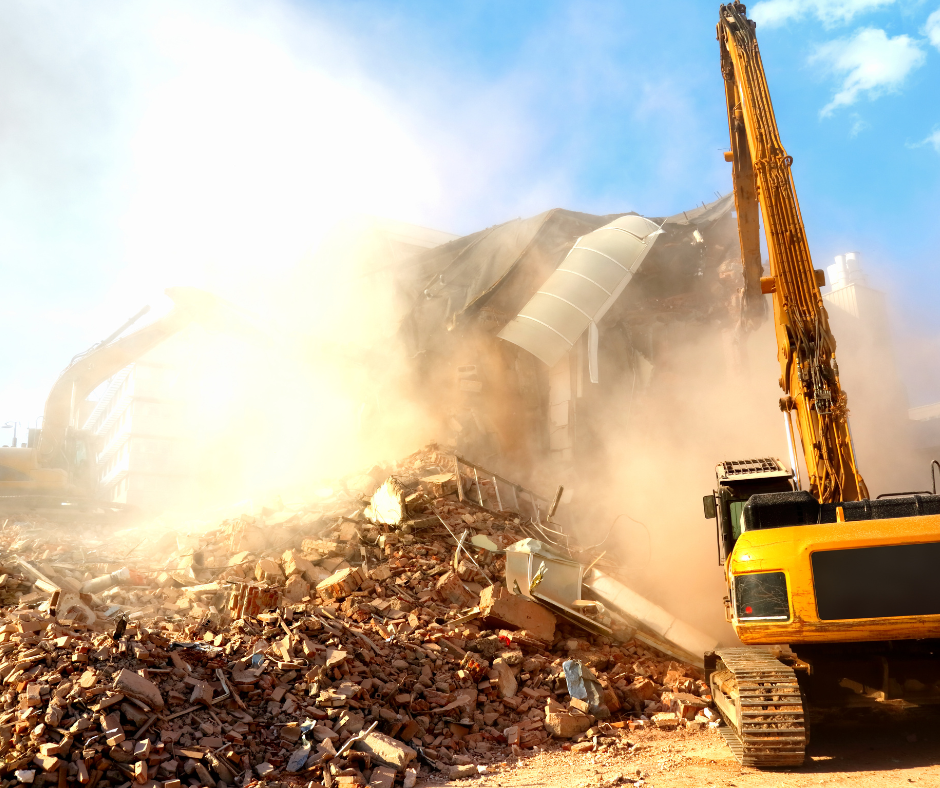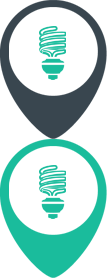Nuclear Services
On-Site Remediation
Health Physics Services
Toronto, Ontario

Our Nuclear Services team has been supporting Canadian Nuclear Laboratories (CNL, previously AECL) since 2002. Our support encompasses waste management, project management, instrumentation, training, program development, and decommissioning.
Characterization, removal, segregation, packaging, and transportation to Chalk River.
Contracts for on-site waste sampling, packaging, and transportation and off-site thermal destruction.
Applied risk analysis process to identify, assess, and manage risks for the B-300 demolition project.
Solid waste characterization and removal. Design and construction of a mobile liquid waste extraction and processing facility.
Remedial Action Plan (RAP) development; design and construction of a mobile liquid waste extraction and processing facility.
MARSSIM survey design, instrumentation services, and data collection training.
Our extensive experience and advanced treatment facilities enable us to effectively reduce risk and manage waste at a lower cost. Our Nuclear Services team possesses a diverse range of expertise gained from extensive work in the US and Canada.
.png)

We were awarded a contract to remove roofing materials from a historic building located in
downtown Toronto. The building had been used for the historic manufacture of radium-luminous
dials. The exhaust ventilation discharged onto the roof of the building, contaminating the
roofing materials with radium-226. Although the entire roof was not radiologically contaminated,
the roofing material was segregated to minimize the amount of waste sent to Canadian Nuclear
Laboratories' Chalk River site for safe, licensed long-term storage. This segregation allowed
the other materials to be disposed of in a commercial waste management facility.
The objective of the project was the characterization, removal, segregation, packaging, and
transportation of the roofing material to an appropriate waste management facility. The
radioactive waste was sent to Chalk River, while the non-radioactive waste was sent to Clean
Harbors, Inc. The success of the waste management operations was measured by the ability to
achieve the following end-state requirements:
We mobilized a Project Manager, a Radiation Safety Officer, and a Shipper to characterize and remove the roofing materials (9,520 kg of non-radiologically contaminated and 12,126 kg of radiologically contaminated) from the building roof. We deployed the equipment necessary to perform characterization, transfer the bagged waste from the roof to the ground, and load the waste onto the transport vehicle. Characterization was performed using destructive testing, contamination surveys, and dose rate measurements. Packaging was done using one cubic yard soft-sided IP-1 containers.
Services provided under multiple contracts to CNL (previously AECL) included on-site waste
sampling, packaging, transportation, and off-site treatment at a Perma-Fix facility via thermal
destruction of mixed waste liquids, including disposal or return of secondary ash upon client
request. Perma-Fix holds U.S. Nuclear Regulatory Commission (NRC) Import/Export licenses for
international shipments.
We have an extensive history with the treatment of international waste streams. The
treatment for low-level radioactive liquids and sludges consists of thermal destruction,
resulting in significant volume reduction. Combustion processing leads to minimal disposal
volume for the customer, and a certificate of management is issued upon completion of processing
services. The benefits of utilizing our combustion processing facilities include the capability
to treat both hazardous and non-hazardous waste, sampling and analyzing 100% of the waste upon
receipt to verify constituents, and providing successful destruction of the waste, ~95% volume
reduction, and on-site technical support, including waste brokerage services for profiling
assistance and transportation services through approved transportation providers.
CNL (previously AECL) is decommissioning Whiteshell Laboratories, a nuclear research facility
located in Pinawa, Manitoba. As part of the decommissioning of the site, the existing quantity
of Intermediate and Low-Level Waste (ILLW) had to be removed. Perma-Fix provided the knowledge,
experience, and facilities to transfer and treat the waste through volume reduction via thermal
treatment; the residual ash was returned to Whiteshell for long-term interim storage.
We developed a project plan that outlined the project description, responsibilities,
equipment, and methodology to safely sample and remove the liquid contents from tanks and drums.
We provided technical oversight for the sampling and packaging of the liquid wastes and provided
a certified shipper/broker to develop the manifests, perform labeling and marking, and ensure
the waste was compliantly loaded onto the conveyance. The waste was delivered to the Perma-Fix
Northwest (PFNW) facility for thermal treatment.
We provided AECL with a 36-hour course covering the key initial steps of decommissioning
radioactive material-impacted sites, including historical site assessment, scoping surveys, and
characterization surveys. Performing appropriate assessments and surveys before beginning the
decontamination and decommissioning process aids in developing effective plans and improving
overall efficiency. The primary objective of the Perma-Fix training was to give attendees a
solid working knowledge of the initial steps of decommissioning, specifically the review of
historical data and the design and implementation of initial scoping and characterization
surveys, so that the data produced can add value to the planning and implementation of
additional decommissioning activities.
The training was provided in accordance with the following documents: NUREG-1575,
MARSSIM; NUREG-1757, Consolidated Decommissioning Guidance; and NUREG-1575 Supplement 1,
MARSAME. It included the design of surveys following the Multi-Agency Radiological Site Survey
Investigation Manual (MARSSIM) and the use of the SOR 2000-207 clearance criteria.
Appropriate instrumentation and computer demonstrations were also provided. A variety of
radiation detectors, including alpha, beta, and gamma scintillators, as well as gas proportional
detection systems, were displayed and discussed. Specialized survey systems and techniques, such
as a GPS-assisted gamma mapping system for outdoor surfaces and our Indoor Radiofrequency and
Infrared Survey System (IRISS), were presented, along with a demonstration of how the collected
data is processed to produce color-coded figures of the open land or structural surfaces
surveyed.
AECL implemented the Nuclear Legacy Liabilities Program (NLLP) to strategically address legacy
waste, decommission facilities, and restore lands affected by AECL's early operations. As part
of this initiative, two Active Liquid Waste Tanks (ALWTs) located at CRL in Ontario, Canada,
were identified as requiring remediation.
We were awarded a contract for developing a Remedial Action Plan (RAP), designing and
constructing a mobile liquid waste extraction and processing facility, and packaging,
transporting, and disposing of approximately 3,500 gallons of mixed low-level waste (MLLW). It
was determined that the waste would require thermal treatment at an RCRA-permitted facility, and
the resulting ash would be returned to AECL in accordance with the approved import license
agreements. Completion of this project allowed AECL to place the waste management area in a
stable configuration and reduce the risk of leakage from the aging tanks.
We managed the solid waste located at the Douglas Point Facility. The Douglas Point nuclear power
plant was commissioned in the early 1960s and is located at the Bruce Power site. The plant
operated until 1984 when it was deemed not economically viable to continue operations. It is
currently shut down, defueled, and in the process of being decommissioned. An assessment
determined that the waste stored in the facility presented a fire hazard and must be removed to
ensure the facility's safety. To support this effort, all debris waste stored at the plant would
be characterized, packaged, and transported off-site for processing and disposal. The waste
consisted of drums containing contaminated fuel trays, bags of dry active waste (DAW), drums
containing contaminated soil, expended high-efficiency particulate air (HEPA) filters, lead
bricks, and miscellaneous debris. Completion of the waste clean-out effort would place the
facility in a safe condition and allow the next phase of decommissioning to proceed.
We removed and characterized 264 drums (114,000 pounds) of fuel tray segments from the
Reactor Building and removed, characterized, and packaged waste streams located throughout the
Service Building, including 24,000 pounds of DAW, 50,000 pounds of equipment and debris
requiring decontamination and survey for free release/recycle, 17,000 pounds of waste for bulk
survey for release (BSFR), and 31,000 pounds of lead for decontamination and survey for free
release/recycle. We installed a process enclosure within the facility to allow for the intrusive
characterization, sorting, segregating, and packaging of the various waste streams.
Characterization was performed using contamination surveys, dose rate measurements, and in situ
object counting systems (ISOCS) measurements. Packaging was done using sea/land containers, B-25
boxes, and soft-sided IP-1 containers.
We have supported cleanup efforts for AECL since 2002. Our Diversified Scientific Services, Inc.
(DSSI) facility has treated low-level liquids and mixed low-level liquids (oils, chemicals,
water, lab packs, vials) and sludges typically contaminated with H-3 at high levels. Other
isotopes of concern included uranium, plutonium, strontium, cobalt, and cesium. The primary
treatment technology has been thermal destruction for liquids and sludges.
Since 2009, CNL has brokered and shipped approximately 2,000 cubic feet of waste to our
facility for thermal destruction and has returned ~400 cubic feet (3,779 pounds). The returned
volumes have consisted of ash from the thermal treatment process and glass, plastic, and empty
drums.
Our on-site activities have included brokerage services, packaging oversight, and
on-site sampling campaigns. Based on our successful sampling campaigns, CNL contracted us to
provide sampling training. Additionally, Perma-Fix provided on-site services for the Active
Tanks 1 and 2 Remediation project at the Chalk River Site, which included the design and
construction of a mobile liquid waste extraction and processing facility on-site. The liquid
waste was successfully extracted, processed, packaged, and transported for final treatment.

Waste Treatment
Our fixed base facilities offer highly specialized treatment options that help reduce risk and avoid costly internal program development.
. .
Nuclear and Radiological Services
Our highly experienced team of professionals can handle domestic and international challenges across all project disciplines.
. .
Health Physics
Services
We have cutting-edge technologies, a large team of industry experts, extensive capabilities, and an unwavering commitment to safety.
. .
Innovation and Technology Development
We are equipped with the capability and facilities to pioneer groundbreaking innovations in unique treatment capabilities.
. .